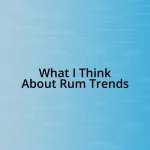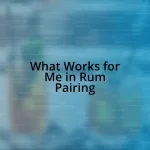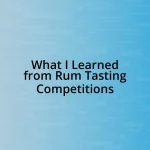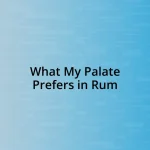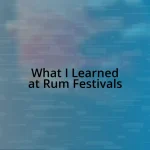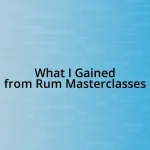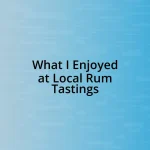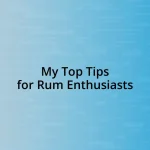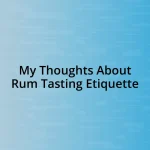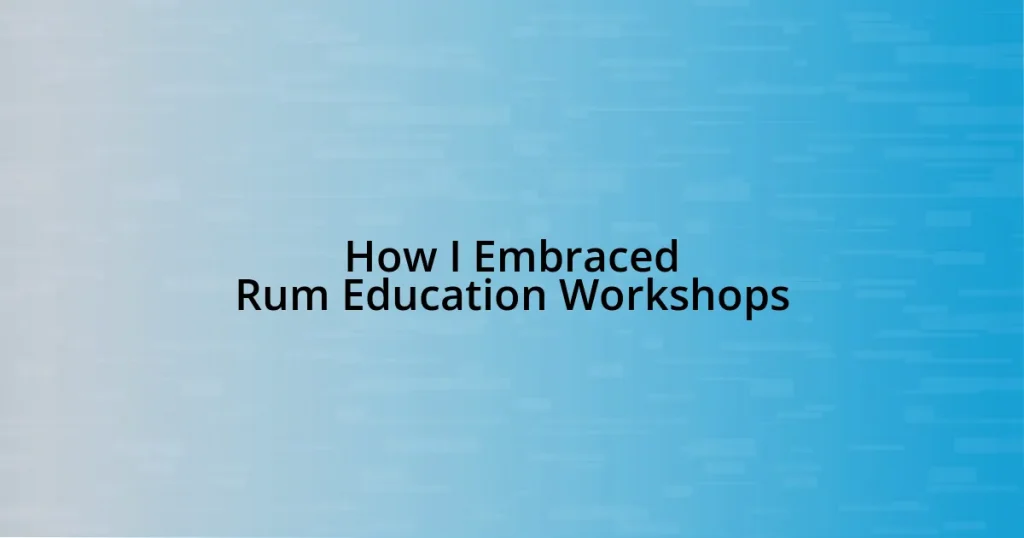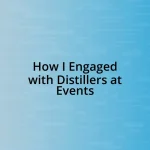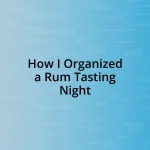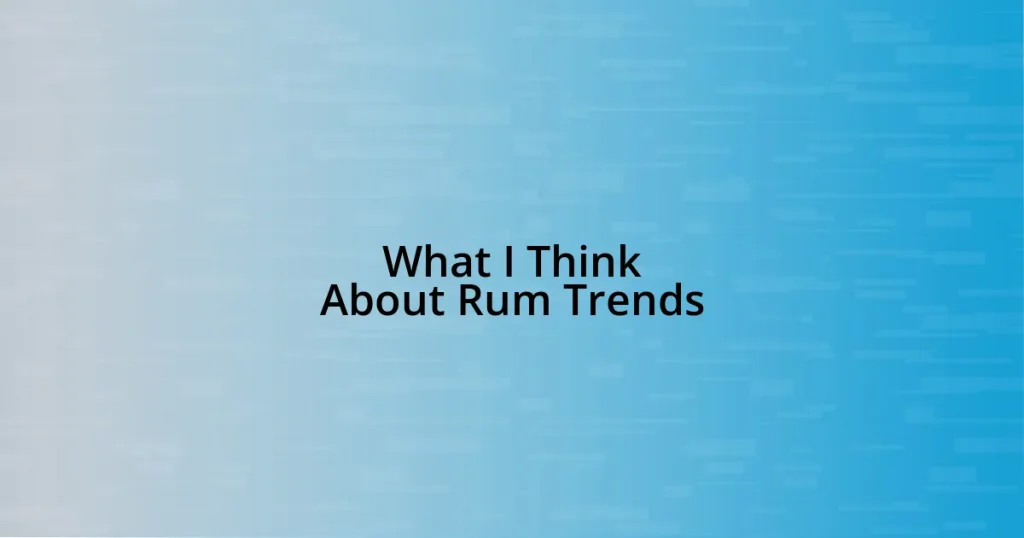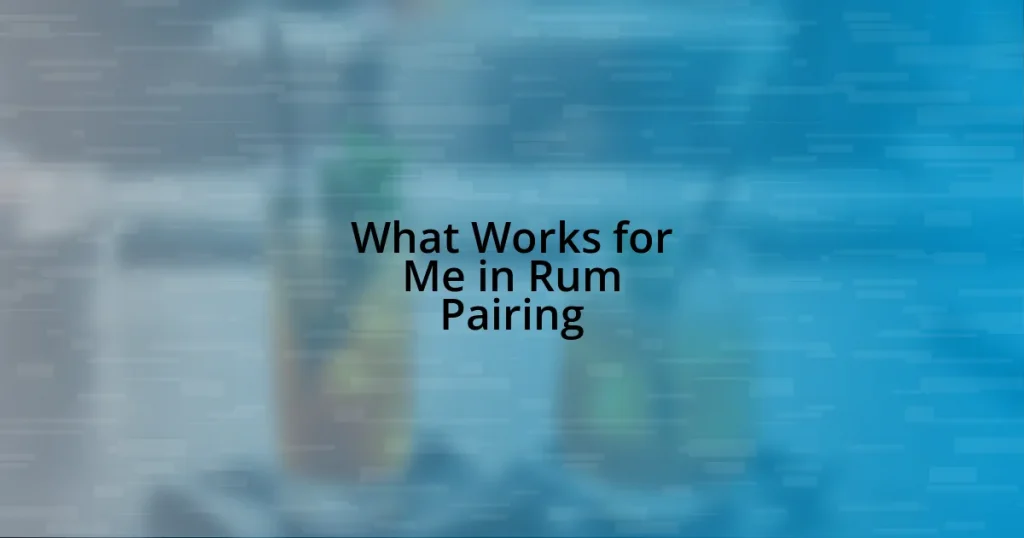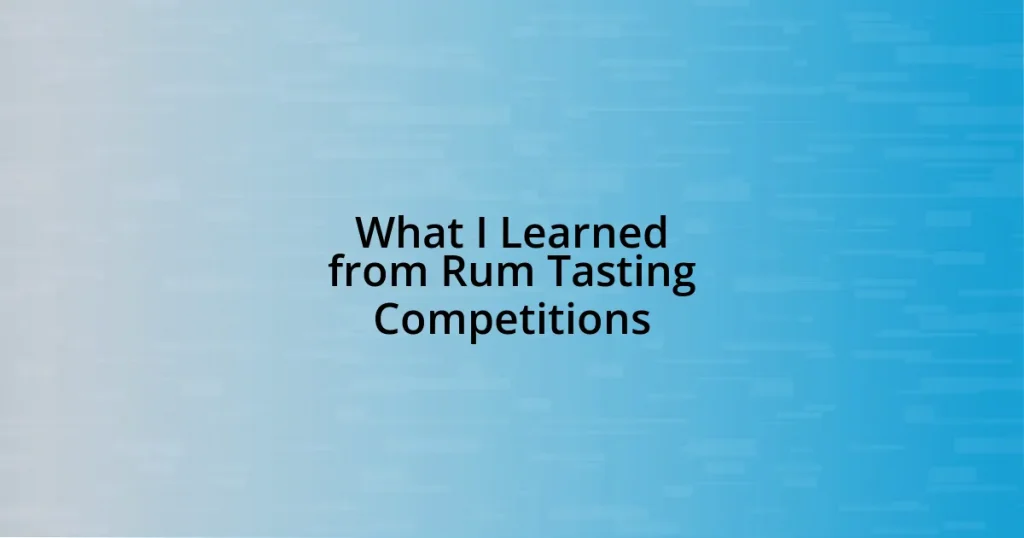Key takeaways:
- Workshops provide hands-on learning experiences that enhance knowledge through tasting and collaboration.
- Different types of rum workshops cater to various interests, including tasting, mixology, distillation, food pairing, and regional exploration.
- Interactive sessions foster camaraderie and creativity, allowing participants to engage actively with fellow enthusiasts and facilitators.
- Applying workshop knowledge at home, such as hosting tastings and documenting experiences, enriches appreciation and understanding of rum.
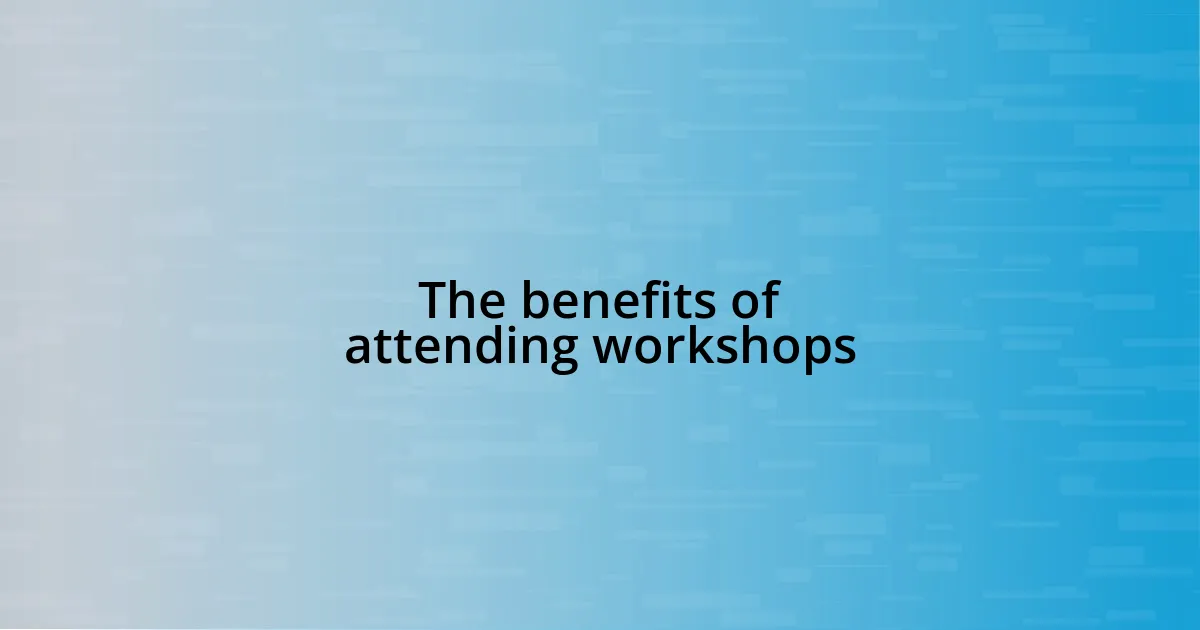
The benefits of attending workshops
Attending workshops offers an incredible opportunity to deepen your understanding in a hands-on way. I vividly remember the excitement I felt when I participated in my first rum workshop. The energy in the room was contagious as we tasted various rums together and shared our perceptions—I learned so much from others’ experiences and perspectives.
One of the most significant benefits is the chance to connect with like-minded individuals who share a passion for rum. Have you ever found yourself in a conversation that sparked new ideas? I certainly did, discussing different distillation methods with fellow enthusiasts. Those conversations not only broadened my knowledge but also forged friendships that extended beyond the workshop.
In addition, workshops often create an environment that encourages experimentation. When I faced the challenge of mixing flavors, I felt a mix of excitement and nervousness. However, guided by the expert facilitators, I discovered the joy of creativity in crafting my own cocktails. This hands-on approach brought out my inner mixologist and instilled a sense of confidence I carry with me to this day.
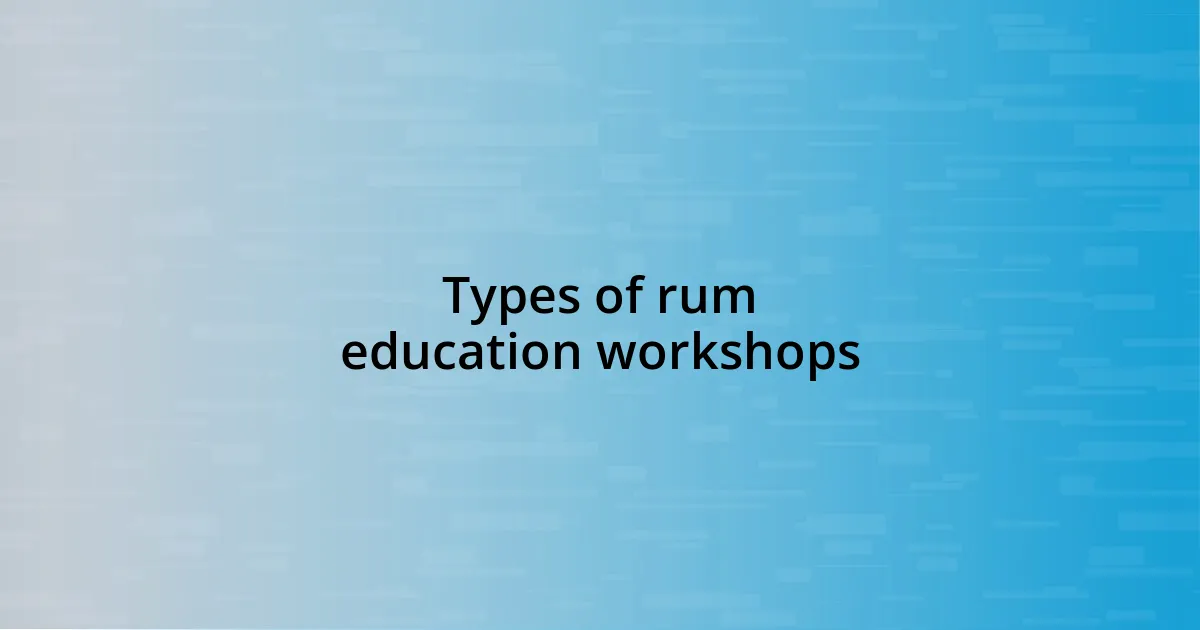
Types of rum education workshops
When it comes to rum education workshops, the diversity in offerings is truly fascinating. I’ve participated in several types, each providing unique insights and experiences. From beginner sessions focusing on basic tasting techniques to advanced workshops that delve into the subtleties of aging and blending, there’s something for everyone with a passion for rum. I remember feeling a surge of excitement during a workshop dedicated solely to Caribbean rums; it felt like a mini-vacation for my taste buds!
Here are some popular types of rum education workshops you might encounter:
- Tasting Workshops: Focus on the sensory experience of rum, where participants sample different varieties and learn how to identify flavors and aromas.
- Mixology Classes: Teach the art of crafting cocktails, emphasizing balance and creativity to elevate the rum experience.
- Distillation and Production: Offer an in-depth look at the process behind rum-making, from fermentation to bottling, often featuring distillery tours.
- Rum and Food Pairing: Highlight how to pair various rums with food, exploring flavors that complement and contrast with each other.
- Regional Focus Workshops: Explore the unique characteristics of rums from specific countries or regions, such as the Caribbean, South America, or even Asia.
Each workshop type is an adventure in itself, and I can’t help but feel grateful for the knowledge and camaraderie gained from these experiences. Engaging with fellow rum enthusiasts in these settings really deepened my appreciation for the complexity of this spirit.
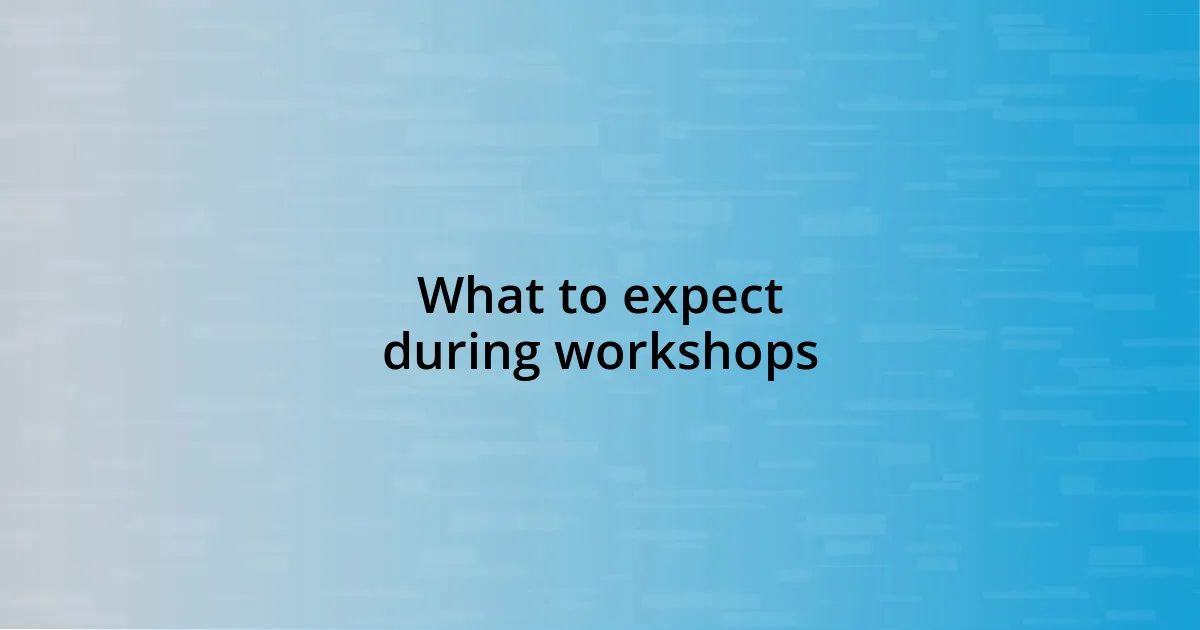
What to expect during workshops
What to expect during workshops
During rum education workshops, you’re in for a delightful mix of learning and enjoyment. Each session is designed to engage your senses and curiosity. I remember stepping into my first workshop, enveloped by the rich aromas wafting from tasting glasses. The excitement in the room was palpable as we dove into the stories behind each rum—each sip felt like a small adventure. You’ll discover firsthand how different rums can tell us about their origins through their distinct flavors.
Expect interactive experiences that go beyond mere presentations. I recall a particularly fascinating session where we teamed up in small groups, each tasked with crafting our own rum cocktails. This collaborative approach not only expanded my knowledge but also formed bonds with fellow enthusiasts. We laughed, experimented, and learned from our mistakes together—the atmosphere was infectious! I couldn’t help but feel a sense of accomplishment when our cocktails received compliments from the instructors.
Another aspect that truly makes workshops special is the expertise of the facilitators. They don’t just share facts; they weave personal stories into the lessons. I still remember how one facilitator described their journey through rum-making, instantly sparking my passion. Their enthusiasm created a warm and inviting classroom environment that made absorbing new information enjoyable. You’re not just a passive participant; you’re an active member of a vibrant community of rum lovers.
| Workshop Experience | Details |
|---|---|
| Sensory Engagement | Explore and identify flavors through interactive tastings. |
| Hands-On Activities | Collaborative cocktail crafting and group projects. |
| Expert Insights | Personal anecdotes and stories from industry professionals. |
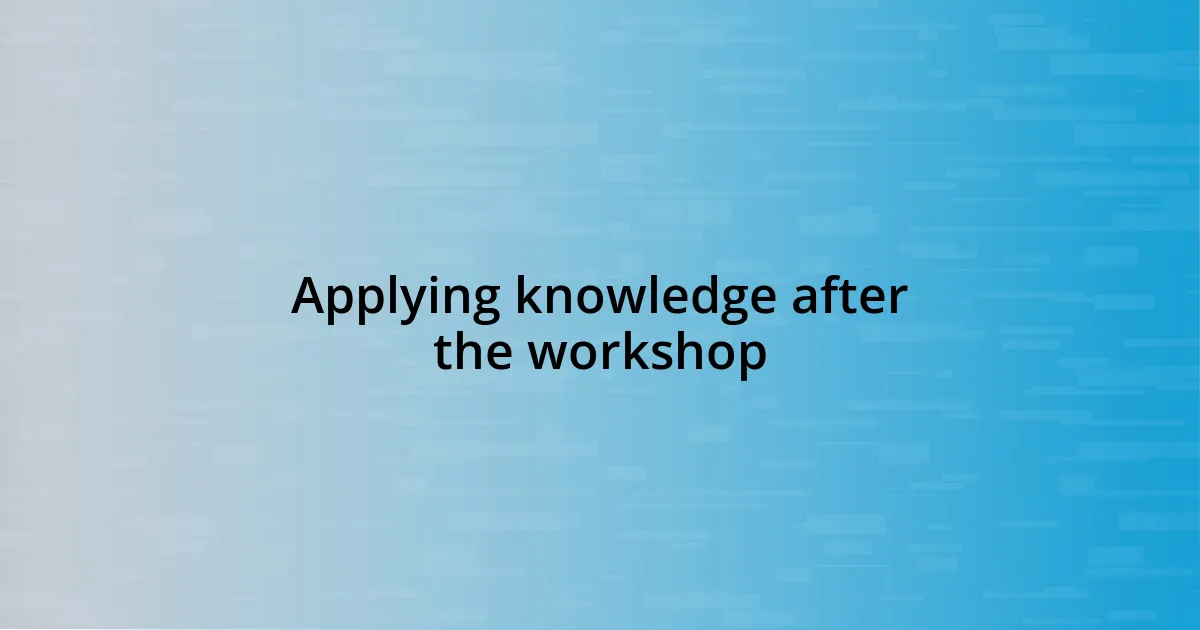
Applying knowledge after the workshop
Applying knowledge after the workshop doesn’t just happen automatically; it’s a conscious effort to engage with what I’ve learned. I remember walking away from one particular session buzzing with insights about rum profiles. I couldn’t resist hosting a tasting night at home to share these new skills with friends. It became a highlight for everyone, turning mere observations from the workshop into engaging discussions about flavors and techniques. Isn’t it fascinating how sharing knowledge can deepen our understanding?
After a workshop, I found that jotting down notes while the experience was fresh in my mind made all the difference. I started a dedicated rum journal, chronicling my tastings and the characteristics of each rum I tried. It helped me to not only remember but to develop my palate. Reflecting on those early notes, I can see how much I’ve grown as a rum enthusiast. Have you ever documented your experiences? It’s like creating a personalized taste map of your journey.
Integrating these learnings into my daily life has brought a richer dimension to my enjoyment of rum. For instance, I began experimenting with food pairings at dinner parties, using what I learned during a food pairing workshop. One memorable evening, a spiced rum paired beautifully with grilled pineapple—something my guests are still raving about! I’ve discovered that the knowledge I acquired fuels my creativity and enhances the overall experience, making each sip more meaningful.

